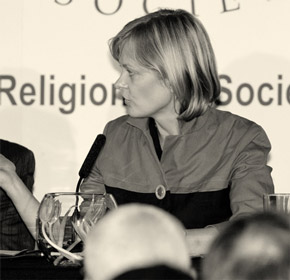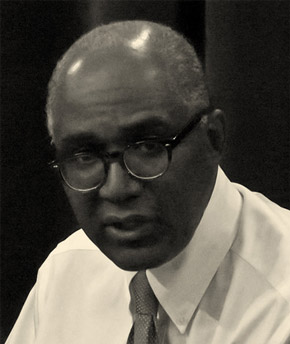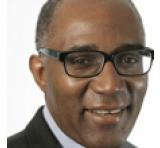Religious Identity in ‘Superdiverse’ Societies
- Academics
- Kim Knott Lancaster University
- Therese O’Toole Bristol University
- Public Figures
- Trevor Phillips Chair, Equality and Human Rights Commission
- Dominic Grieve Attorney General
Questions for debate
How do we live well together in an increasingly diverse society, and how does religion contribute for good or ill?
Conclusions from the debate
Since the 1970s the UK has been the most successful country in Europe at integrating an increasingly wide range of religious identities and allowing them agency in society. This achievement should be more widely recognised.
But the success means that religious identities are now so diverse that it is no longer as helpful to think of a small number of ‘world faiths’ which make people ‘Hindu’, ‘Muslim’, ‘Christian’ etc and which must relate to one another in a ‘multi-culture’. Many people are now religious ‘in their own way’, there are many varieties of Hindu, Muslim, and Christian, and religious identities are inflected by ethnicity, gender and so on. The concept of ‘superdiversity’ may now be more helpful than ‘multiculturalism’.
Research Findings
Britain leads in Europe in successful multi-faith work and integration of religious groups; many such groups are now significant agents in civil society; New Labour achieved a great deal in supporting multi-faith and inter-faith work; the Coalition government is continuing this work with more confidence but less cash.
Religious diversity is no longer a matter of homogenous religious communities (Christian, Muslim, Hindu etc.) living side by side and together. Earlier talk of ‘multiculture’ can be unhelpful if it perpetuates this idea.
The decline of organised forms of religion has been accompanied by a multiplication of religious groups, more individualised religious identities, and multiple forms of belonging.
People do not have singular identities, but mixed ones (religious, gendered, ethnic and so on). It depends on context which aspect comes to the fore – often people ‘mobilise’ one aspect of their identity only when it is under threat.
‘Superdiversity’ tries to capture the complex forms of multiple identity which result from migration, mobility, and expanded cultural and religious choice.

"It’s about the vision we have of ourselves as a society and how we live well together…"
Points of Debate and Disagreement
| ‘Superdiversity’ is too vague to have policy relevance. |  |
‘Superdiversity’ can be cashed out in policy terms. E.g. less attention should be given to so-called ‘faith communities’ and their leaders, and more to individuals – including the majority of believers in the UK who do not belong to an organised religion. |
| It is anachronistic in a multifaith society to distribute funding for faith bodies via the Church of England, as the Coalition government’s Near Neighbours Scheme is doing. |  |
It is appropriate to distribute funding for many faith bodies via the Church of England because it has a long history of dealing tolerantly with different beliefs. |
| David Cameron’s emphasis on Christian culture and ‘muscular liberalism’ threatens to under-mine the gains made in the name of multiculturalism. |  |
Cameron was talking about Britain’s distinctive culture, which is able to integrate many identities, without asking people to surrender who they are. |
Practical Suggestions
The UK should be more positive about how much has been achieved in terms of integrating a huge range of different identities, including religious ones – the bad news stories tend to eclipse the good news. Emphasis should continue to shift away from the state giving a small number of religious group identities what they ‘need’, to supporting freedom of conscience of individuals (liberty and toleration), and making sure that the life-chances of people are not limited by their identities (fairness and equality).
Insofar as there is a ‘host culture’ it is, and should remain, one which is hospitable to religious difference and freedom of conscience. This is the majority position, and whilst more exclusivist minorities retain their normal rights, they do so within this broader framework.
With ever-increasing diversity there will be more challenges. In order to meet these there needs to be:
- understanding of the civic ‘rules of engagement’ which make it possible to live peacefully together and to reach agreement
- creative partnerships with the state, including financial support for religious and other initiatives which encourage integration
- awareness of how policies (e.g. on counter-terrorism) can foster the misleading idea that there are homogenous religious identities which wholly define people (e.g. ‘Muslim’)
- better mechanisms, especially at local level, for dealing with religious disputes and reaching agreement.

"Living together graciously… Let’s be upfront about this… This country is really good at managing the issues of difference."
"After 2005 we begin to see more of an emphasis on faith groups as possessing the ability to deliver social capital."
How the Media Reported the Debate
"How does Prof Knott square media contempt for religious figures and principles with her Pollyanna view of a harmoniously tolerant Britain?"
"How should the State and the judiciary defend (religious) liberty, in a land whose people now have a thousand gods instead of one, and in which atheists demand to be heard? And what part can the beleaguered national church play?"
"Christians who argue they should be exempt from equalities legislation are no different from Muslims who want to impose sharia law in Britain, a human rights chief has declared."




